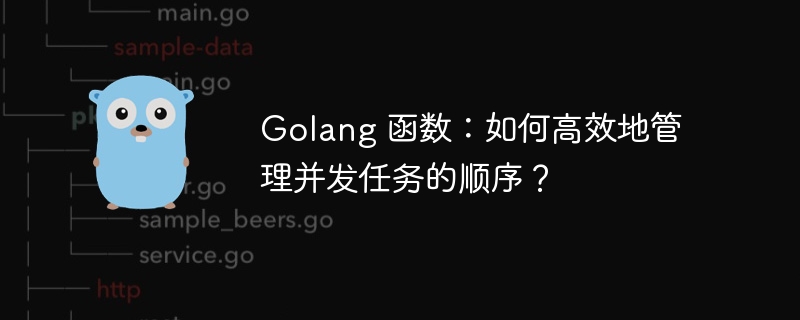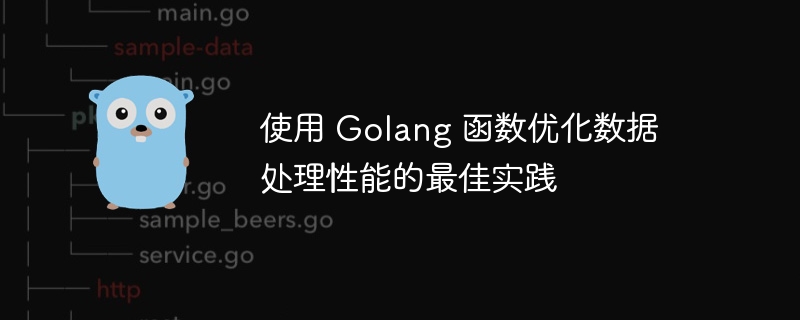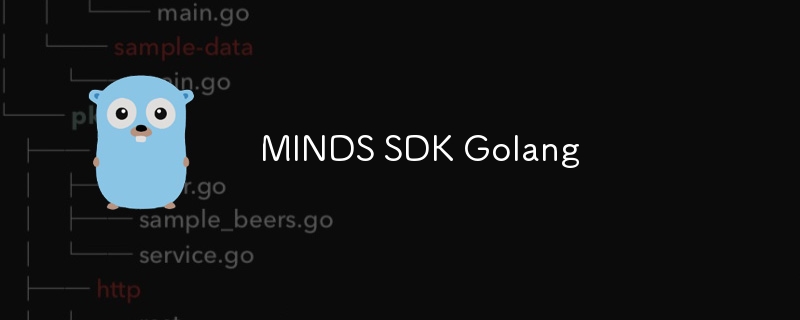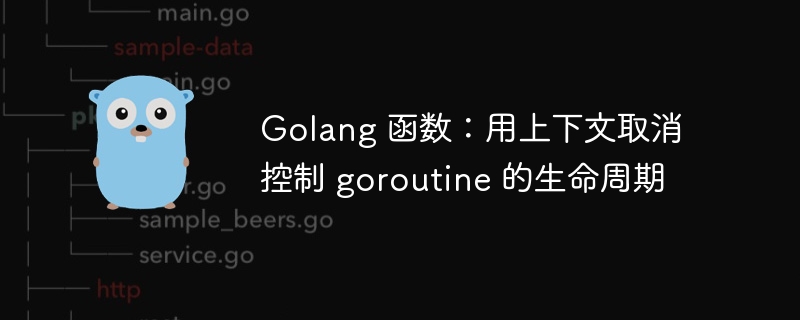本文概述了用于监控和管理 golang goroutine 的内建函数。这些函数包括:runtime.numgoroutine:返回当前运行的 goroutine 数量。context.context:允许在 goroutine 之间传递取消信号和信息。sync.waitgroup:用于同步 goroutine,确保主 goroutine 在所有子 goroutine 完成后才继续执行。

Golang 函数:监测和管理 Goroutine
Goroutine 是 Golang 语言中轻量级的并行执行单元。高效管理 goroutine 对于编写可扩展和响应迅速的应用程序至关重要。本文将介绍用于监测和管理 goroutine 的几个内建函数。
Goroutine 监测
runtime.NumGoroutine
此函数返回当前正在运行的 goroutine 数量。它有助于确定应用程序中 goroutine 的数量以及它们随时间的变化情况。
立即学习“go语言免费学习笔记(深入)”;
package main
import (
"fmt"
"runtime"
)
func main() {
for i := 0; i < 10; i++ {
go func() { fmt.Println(i) }()
}
fmt.Println("Number of goroutines:", runtime.NumGoroutine())
}Goroutine 管理
context.Context
Context 允许在 goroutine 之间传递取消信号和其他信息。它非常适合在 goroutine 超时或需要在不受控制的并发情况下被终止时安全地取消正在进行的操作。
package main
import (
"context"
"fmt"
"time"
)
func main() {
ctx, cancel := context.WithTimeout(context.Background(), 5*time.Second)
defer cancel()
go func() {
for {
select {
case <-ctx.Done():
fmt.Println("Context cancelled")
return
default:
fmt.Println("Working...")
time.Sleep(time.Second)
}
}
}()
time.Sleep(10 * time.Second)
}sync.WaitGroup
WaitGroup 允许 goroutine 同步,等待一段时间内所有 goroutine 都完成。这对于确保在所有子 goroutine 完成之前主 goroutine 不继续执行至关重要。
package main
import (
"fmt"
"sync"
)
func main() {
var wg sync.WaitGroup
wg.Add(2)
go func() {
defer wg.Done()
fmt.Println("Goroutine 1")
}()
go func() {
defer wg.Done()
fmt.Println("Goroutine 2")
}()
wg.Wait()
fmt.Println("All goroutines completed")
}以上就是Golang 函数:如何监测和管理 goroutine的详细内容,更多请关注php中文网其它相关文章!






